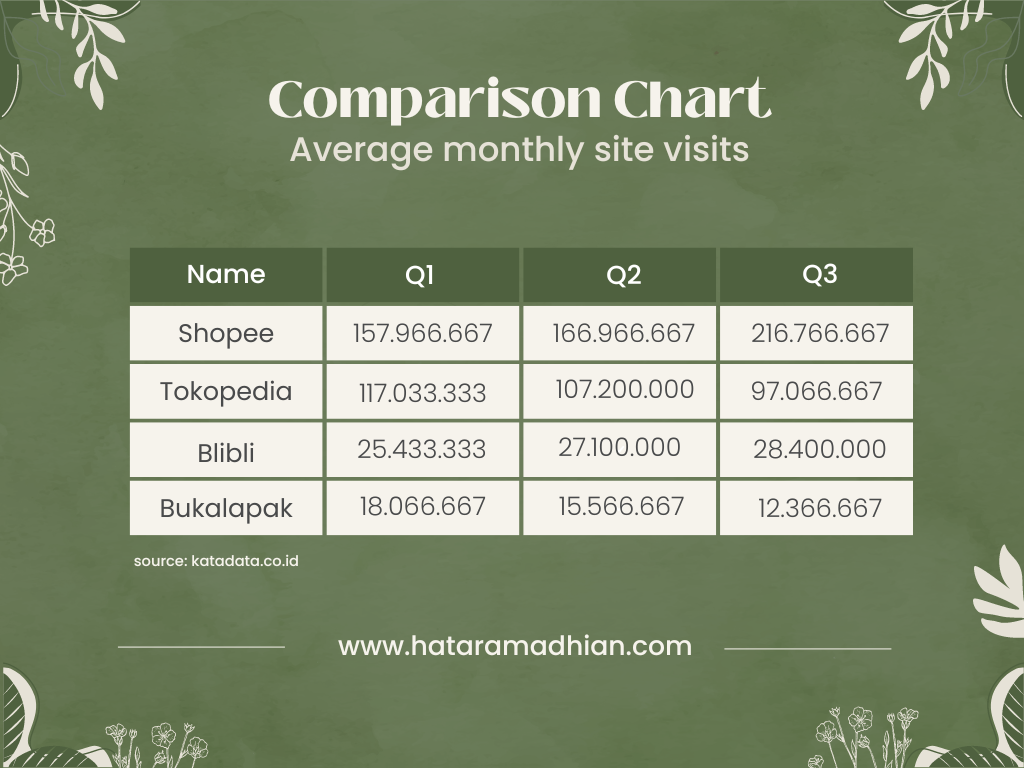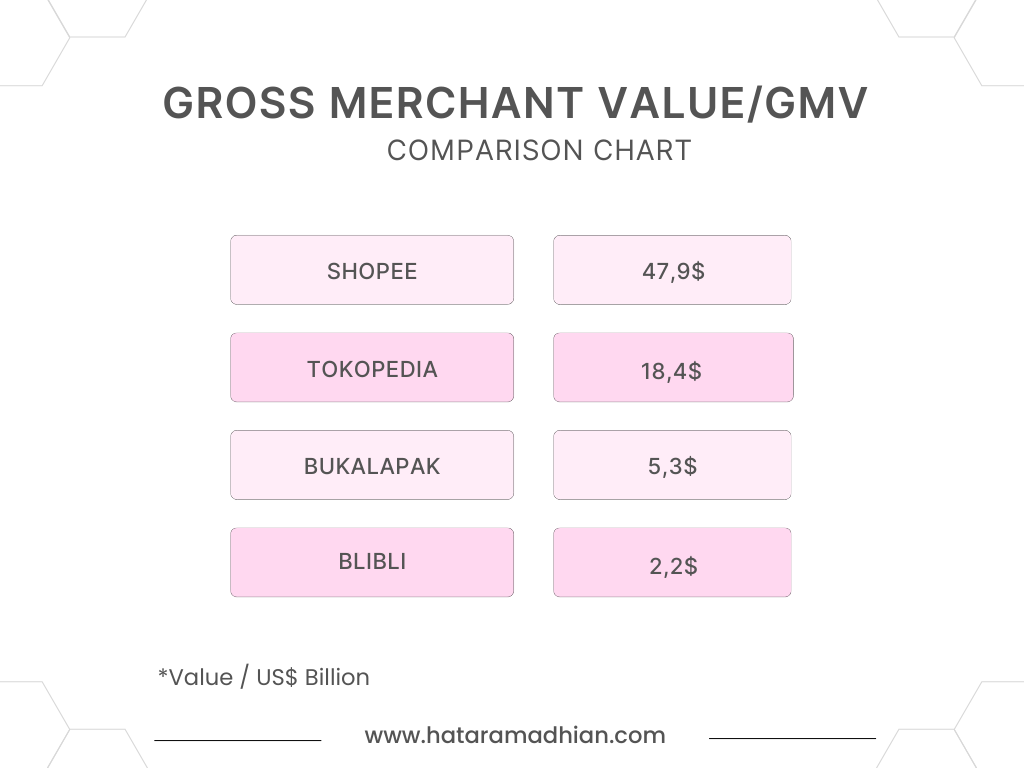
Shopee, Tokopedia, Bukalapak, and BliBli: Who is the Strongest?
Indonesia, a country located between the continent of Asia and the continent of Australia, which currently occupies the fourth position with the largest population in the world, is witnessing an E-Commerce revolution.
With a large population, certainly consumptive behavior in the country accompanied by the increasing number of internet users and increasing use of smartphones, Indonesia is fertile ground for E-Commerce businesses to develop.
Four giants compete for ultimate dominance: Shopee, Tokopedia, Bukalapak, and BliBli. But because each player uses different strategies and caters to different audiences, the question remains: Who truly reigns supreme?
Trend Analysis and Market Summary
According to research conducted by DS/Innovate, the Indonesian E-Commerce market is expected to reach US$86.81 billion in 2028, with a Compounded Annual Growth Rate (CAGR) of 10.40% during the forecast period. This growth was driven by several important factors, including:
1. Increase in Internet users and ease of surfing on the internet.
2. Increasing use of smartphones in Indonesia.
3. Increasing income of "middle class" people in Indonesia.

According to many sources that I have read, one of which is similarweb.com, Shopee is the E-Commerce champion in Indonesia with the number of site visits in the first quarter to the third quarter of 2023.
Not only looking at the average number of monthly site visits, Momentum Works, a Singapore-based venture builder, released a report in October projecting the percentage of Southeast Asia's e-commerce GMV for 2023.

Despite their combined $25.9 million GMV, Tokopedia, Bukalapak, and BliBli collectively fall significantly behind Shopee's market strength.
Gross Merchandise Value (GMV) represents the total dollar value of transactions on a C2C exchange platform over a defined period. It serves as a key metric for gauging platform growth and effectiveness in facilitating the sale of third-party goods.
E-commerce Loyalty: The Secret Sauce to Customer Hearts (and Shopping Carts)
The trust factor is a key factor, only customers who have trust will dare to make transactions through Internet media, without customer trust, it is impossible for E-Commerce transactions to occur. The following are several main factors that influence customer loyalty in Indonesian E-Commerce:
1. Product quality and variety.
2. Competitive pricing.
3. Smooth user experience in surfing E-Commerce applications.
4. Trust and security for buyers.
Instead of isolated browsing, cultivate a thriving e-commerce community! Spark interactions with engaging platforms. Host online events, ignite user-generated content, and connect directly with customers on social media.
Unmask your brand advocates, empower them to share their experiences and influence others. This organic loyalty is a goldmine, building trust, credibility, repeat purchases, and glowing word-of-mouth.

Loyalty programs aren't just about points and discounts; it's about creating a sense of belonging and appreciation. Offer exclusive benefits like early access to sales, personalized discounts, and VIP experiences. Combine the process with points, badges, and leaderboards to keep customers engaged and motivated.
Remember, it's not just about the value of the reward, but also the emotional connection it creates. Make customers feel part of a special club so they get exclusive privileges.
From the data presented above, Shopee is clearly the champion of E-Commerce in Indonesia, far outperforming its competitors.
I analyzed the many factors why Shopee could become number 1 in Indonesia. From these many factors, the author concluded that Shopee offers very good service, from pre-sales service to after sales service.
An easy return and exchange system for goods is an important factor in after sales service. Then if we talk about pre-sales service, easy display on the website also greatly influences the value of customer loyalty on a site.
0 Comments Add a Comment?